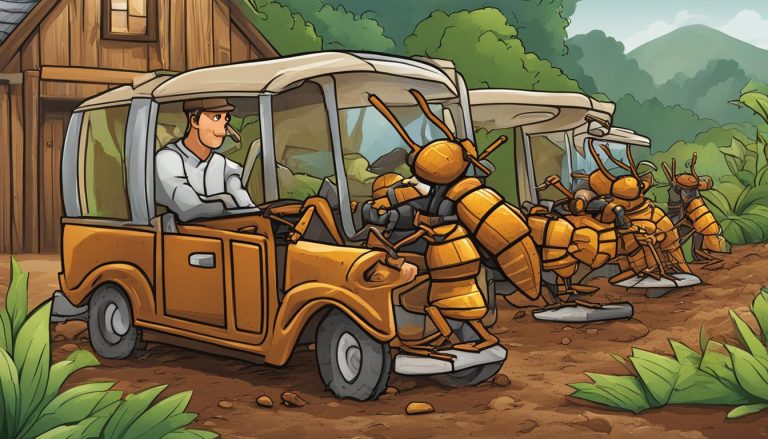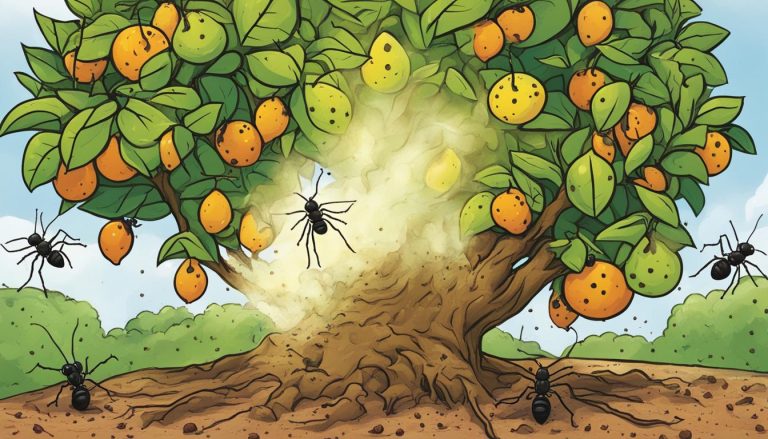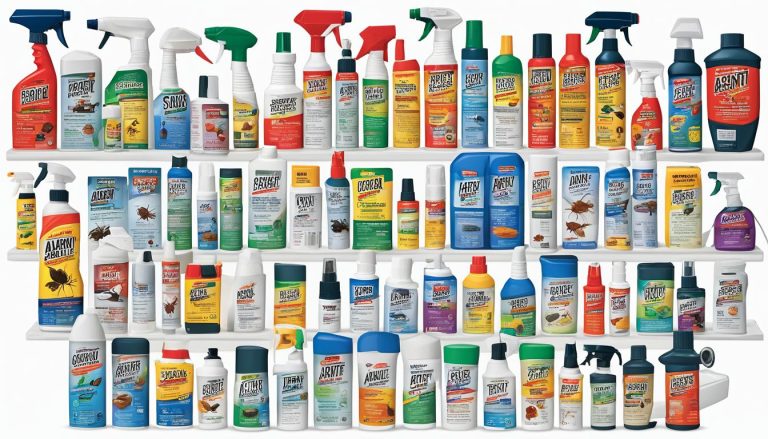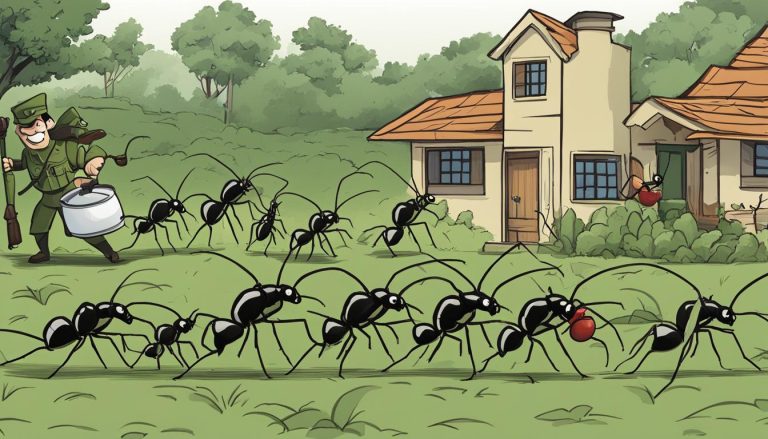Struggling with an ant problem in your home? You’re not alone. In Australia, dealing with ants is pretty common, but don’t worry—there are plenty of ways to sort it out. Ant control for house means a bit of know-how and taking the right steps. Whether you’re after natural ant control or thinking about getting rid of ants in the house with professional help, you’ve got options. Ant extermination doesn’t always mean harsh chemicals; there are safer ways to keep your family and pets out of harm’s way.
If the little critters have made their way in, ant pest control can start with simple stuff you’ve probably got in the kitchen already. And for the big troubles, professional ant control services are there to help. But remember, keeping ants away is just as important as getting rid of them. So, let’s talk about ant prevention—keeping your place less inviting for ants so they don’t come back.
Understanding Ant Infestations in Your Home
The Diversity of Ant Species and Their Habitats
Ants are everywhere in Oz, and they all like different spots to live. Some dig in the dirt, some hide in the walls, and others love to nest in plants. They’re usually after a feed, which is why they come nosing into your house. But if you know what attracts them, you can make your place a no-go zone for these little mates.
Health Risks Associated with Ants
Most ants are all right, but some can be real trouble, carrying germs and making people sick. A study even found that certain ants can spread nasty bacteria. Yikes! That’s a solid reason to keep them out of your kitchen and away from your family.
Common Entry Points and Attractants for Ants
Ants are tiny and can sneak into your house through the smallest cracks. They come for the crumbs, the sweets, and even your pet’s dinner. Sealing up cracks and keeping the place clean can make a big difference.
Key Takeaways
- Ant control keeps your home safe and sound.
- Use stuff from around the house to fight ants.
- For big problems, pros can do the exterminating.
- Prevention means your place isn’t ant-friendly.
- Seal gaps and keep clean to keep ants out.
Understanding Ant Infestations in Your Home
Welcome to a closer look at the little invaders of our homes – ants. While we may only see a few of them, there’s a whole world to the story of these tiny critters.
The Diversity of Ant Species and Their Habitats
Australia is known for its rich tapestry of wildlife, and ants are no exception. With thousands of ant species around the globe, knowing which kind call your backyard home is the first step in ant control for house. These critters set up their homes in various ant habitats, such as:
- Underground burrows
- Inside wooden structures
- Amongst plants and trees
By maintaining a tidy house and garden, we can make our homes less alluring to ants.

Health Risks Associated with Ants
There’s more to an ant infestation than meets the eye. Some ants can pose ant-related health risks, including disease transmission by ants. Research has highlighted that certain ants can transport harmful bacteria, meaning that keeping them out is key to our health.
Common Entry Points and Attractants for Ants
To tackle an infestation, it’s crucial to pinpoint how ants are getting inside. Ant entry points can be minuscule but become highways for these pests. Look for gaps:
- In walls
- Around window frames
- Near power outlets
Once inside, they’re on the hunt for food. Attractants for ants include:
- Food scraps
- Sweets and starches
- Pet food
By securing food in airtight containers and keeping your abode squeaky clean, you not only deter ants but also maintain ant control for house.
| Ant Species | Common Attractants |
|---|---|
| Carpenter Ants | Moist wood |
| Sugar Ants | Sweets, sugar |
| Argentine Ants | Meat, eggs, oils |
| Fire Ants | Proteins, greasy foods |
Ant Control for House: Proven Natural Solutions
When ants come marching in, it’s vital to know the natural methods to show them the way out. Let’s delve into household items that double as ant combatants, explore the wonder of essential oils, and discover the best preventative tactics to keep these six-legged invaders at bay.
Household Products for Ant Elimination
Conventional household items are not just for cleaning and cooking – they’re warriors in disguise when it comes to natural ant control. Household favourites like baking soda, borax, and white vinegar can work wonders. They disrupt the scent trails and can be used to make simple yet effective ant baits. Just mix these with a sweet attractant like powdered sugar, and you’ve got yourself a homemade ant solution.
Essential Oils and Plant-Based Repellents
For a fragrant way to fend off the crawlers, look no further than essential oils for ant control. Oils such as peppermint, tea tree, and cinnamon not only smell divine but are terrific at thwarting an ant’s sense of direction. Meanwhile, plant-based ant repellent takes the form of lemon eucalyptus oil, recognized for its efficacy in keeping insects away. A few drops near potential entry points can work as a natural barrier.
Preventive Measures to Reduce Attractants
Engaging in ant prevention is your first line of defence. Let’s cut off what lures them in the first place by reducing attractants for ant control. This means:
- Keeping your kitchen bench spotless
- Storing food in airtight containers
- Taking out the rubbish regularly
- Fixing any drippy taps to deter the quest for water
Employing these habits will aid in ant infestation prevention and keep your home ant-free.

By incorporating these natural and straightforward solutions into your daily routine, you’ll likely find your home remaining an ant-free zone, minus the need for harsh chemicals. So, here’s to a safer household for both your family and the environment, all while keeping the ants at check!
Conclusion
Wrapping up, ant control strategies are all about know-how and action. It starts with getting to grips with what ants are up to. Once we know why they come knocking, we can keep them out. We’ve talked about using things from your own home to stop ants in their tracks and ways to keep your place less inviting to these little visitors. Remember, a clean house is your first line of defence.
For anyone after an effective ant extermination, it’s all about the safe picks that pack a punch—without causing a fuss for the family or pets. But hey, if the ants are playing hardball, calling in the pros can be a smart move. They’ve got the tools and the tricks to sort out your ant woes for good.
Let’s not forget, keeping ants out is also about safeguarding homes from ants. Through staying vigilant and using these ant-beating tactics, you’re looking after your home, your health, and the whole vibe of your living space. So, keep these tips in mind, and you’ll have the upper hand against ants making a march on your home turf.
FAQ
What are some safe and effective solutions for ant control in the house?
Safe and effective solutions include using household products like borax, baking soda, and vinegar, which disrupt ants’ scent trails, as well as natural remedies like essential oils for ant control, namely peppermint, tea tree, and cinnamon. Preventive measures like sealing entry points and maintaining cleanliness are also key for ant prevention.
Why is it important to understand ant species diversity and their habitats?
Understanding the diversity of ant species and their habitats is important because it helps in identifying the type of ants you are dealing with and their potential to cause harm. Different species have various nesting habits and food preferences, which influences the approach to ant control for the house.
What are the health risks associated with ants in the home?
Some ant species can carry bacteria and present health risks by potentially transmitting diseases or infections. Ensuring efficient ant pest control within homes is vital for reducing these health risks.
How can I identify common entry points and attractants for ants?
Ants can enter through tiny gaps in walls, window frames, or power outlets and are attracted to food sources like sweets, starches, and pet food. Identifying and sealing these entry points, coupled with reducing attractants by keeping food sealed and surfaces clean, are crucial steps in ant prevention.
What household products can be used for natural ant elimination?
Natural ant control can be achieved with household products like baking soda, borax, and white vinegar, which act as natural ant baits and barriers. These can be mixed with powdered sugar to lure ants and are safer for use around pets and children.
Which essential oils and plant-based repellents work best against ants?
Essential oils such as peppermint, tea tree, and cinnamon oil are effective as they disrupt ant pheromones and deter them from entering treated areas. Plant-based repellents like lemon eucalyptus oil are also recognised for their ant-repelling properties.
How can I reduce attractants to prevent ant infestations?
Reducing attractants involves removing food sources and moisture, storing food in sealed containers, managing household waste effectively, and repairing leaky faucets or pipes. Regular cleaning and introducing natural deterrents like strong-smelling substances can help with ant infestation prevention.
When should I consider professional ant control services?
Consider professional ant control services if you are dealing with severe or persistent ant infestations that natural remedies and prevention measures fail to resolve. Professionals can provide more comprehensive and lasting solutions for ant extermination.






